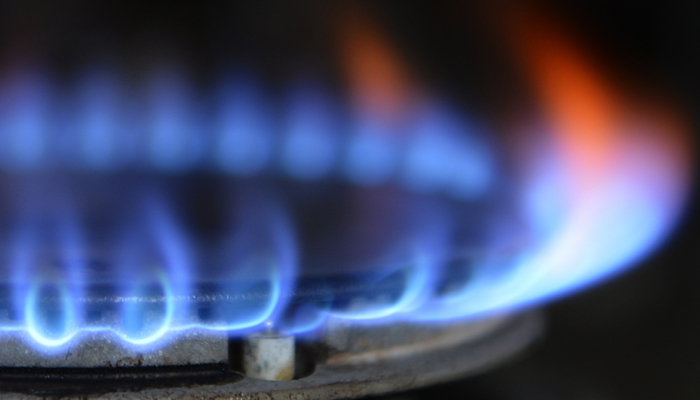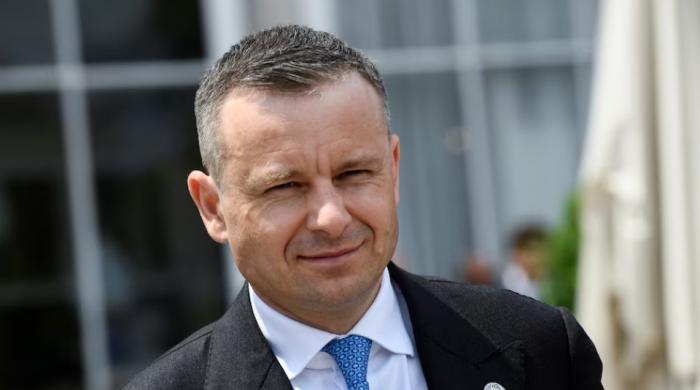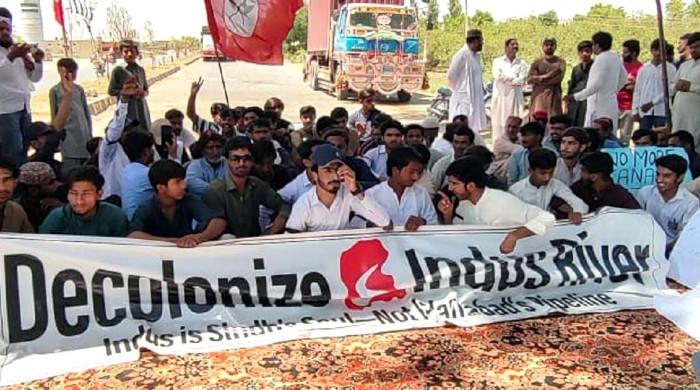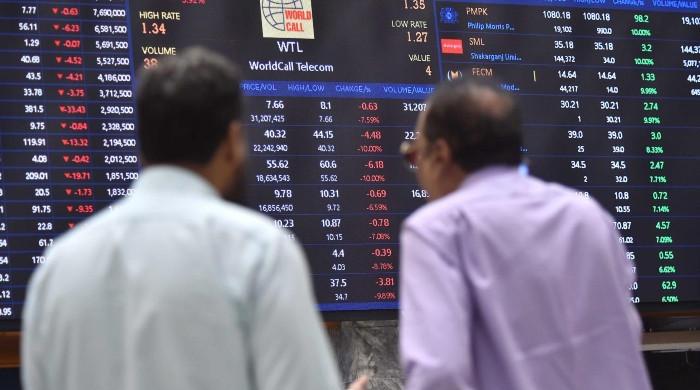Ogra drops gas bomb on masses, okays up to 50% tariff hike
Ogra calculates ERR of Rs697.4 billion to be collected from gas consumers
June 03, 2023

- Ogra seeks to collect Rs697.4 billion.
- SNGPL will collect Rs358.4 billion.
- SSGC will collect Rs339 billion.
ISLAMABAD: Consumers can expect a potential 50% increase in natural gas prices in Pakistan starting from July, The News reported, when the new fiscal year begins.
The Oil and Gas Regulatory Authority (Ogra) Friday concluded its determinations for two struggling state-run gas utilities and submitted them to the government for issuance of notification.
For the upcoming fiscal year 2023-24, Ogra has calculated an estimated revenue requirement (ERR) of Rs697.4 billion to be collected from gas consumers.
The Sui Northern Gas Pipeline Limited (SNGPL), responsible for gas supply to consumers in Punjab and Khyber-Pakhtunkhwa (KP), will collect Rs358.4 billion.
Meanwhile, the Sui Southern Gas Company (SSGC), which supplies gas to consumers in Sindh and Balochistan, will collect Rs339 billion.
The average prescribed price determined by Ogra for SNGPL stands at Rs1,238.68/mmBtu, reflecting a 50% increase or Rs415.11 compared to the existing price.
Similarly, the average prescribed price for SSGC is set at Rs1,350.68/mmBtu, representing a Rs417.23 increase or 45%.
Ogra clarified that the average prescribed price mainly consists of the cost of gas, which accounts for over 85% of the determined price.
This cost is a pass-through item and is calculated based on the agreement between the Government of Pakistan and gas producer companies.
The decision made by Ogra has been forwarded to the government for notification, which is expected to occur within 40 days. Once implemented, the SNGPL and the SSGC will be authorised to collect hundreds of billions of rupees from consumers.
The SNGP initially requested revenue requirements of Rs1,044.12 billion, including a revenue shortfall from the previous year amounting to Rs560.38 billion.
Based on this, the SNGPL sought a 286% increase of Rs2,206.19/mmBtu, which was aimed to set prescribed prices at Rs2,977.5/mmBtu.
Similarly, the SSGC requested an increase of 42%, seeking Rs388.01/mmBtu to recover Rs331.68 billion, resulting in a proposed prescribed price of Rs1,321.47/mmBtu.
The regulator has proposed eliminating the distinction between protected and unprotected slabs for gas consumers and setting the price at 1238.68/mmBtu.
This change will result in a significant increase in gas prices, up to 923%, for protected low-slab consumers. However, two highly gas-consuming slabs will benefit from the new pricing as they were previously paying up to Rs3,100/mmBtu.
The regulator has also recommended a substantial increase in gas prices for roti tandoors.
Interestingly, while gas will become more expensive for zero-rated consumers, CNG stations, cement, fertilizer, power stations, and independent power producers (IPPs) will experience a reduction in gas prices. However, the feedstock gas prices for the fertilizer sector will more than double.
The existing prescribed gas prices for cement, CNG, ice factories, commercial consumers, fertiliser feedstock gas, power stations, captive power, and IPPs are Rs1,500/mmBtu, Rs1,805/mmBtu, Rs1,650/mmBtu, Rs1,650/mmBtu, Rs510/mmBtu, Rs1,050/mmBtu, Rs1,200/mmBtu, and Rs1,050/mmBtu, respectively.
The regulator now suggests a uniform prescribed price of Rs1,238.68/mmBtu for all these categories.
SSGC 'distinction'
For the SSGC clients, the regulator has proposed eliminating the distinction between protected and non-protected slabs and setting the prescribed prices at Rs1,350.68/mmBtu.
The tariff for the first slab of domestic consumers on the SSGC system has been increased to Rs1350.68/mmBtu from the earlier prices of Rs200/mmBtu.
The existing price of Rs300 for the second slab, Rs400 for the third slab, Rs600 for the fourth slab, Rs800 for the fifth slab, Rs1,100 for the sixth slab, Rs2,000 for the seventh slab, and Rs3,100 for the eighth slab have been determined at Rs1,350.68/mmBtu.
This indicates a significant increase in gas tariff for lower slabs, while higher slabs will experience a substantial reduction. It should be noted that over 80% of gas consumers fall within the lowest three to four slabs.
The tariff for the roti tandoor category of gas consumers has been proposed at Rs1,350.68/mmBtu for all five slabs whose existing tariffs range from Rs110 to Rs700/mmBtu.
The gas tariff for commercial gas consumers, including ice factories, has been reduced from Rs1650/mmBtu to Rs1350.68/mmBtu.
The tariff for the general industry has been increased from the current Rs1,200 to Rs1,350.68/mmBtu.
For export-oriented general industry, the tariff has been increased from the existing Rs1,100 to Rs1,350.68/mmBtu. The captive power generation tariff has been raised from Rs1,200 to Rs1,350.68.
The prescribed price of Rs1,350.68/mmBtu has been determined for all these categories, including cement (previously priced at Rs1,500/mmBtu), CNG (previously priced at Rs1,805/mmBtu), Fuji Fertiliser Bin Qasim feedstock for fertilizer (previously priced at Rs510/mmBtu), power generation (previously priced at Rs1,050/mmBtu), Pakistan Steel (previously priced at Rs1,200/mmBtu), and IPPs (previously priced at Rs1,050/mmBtu).











